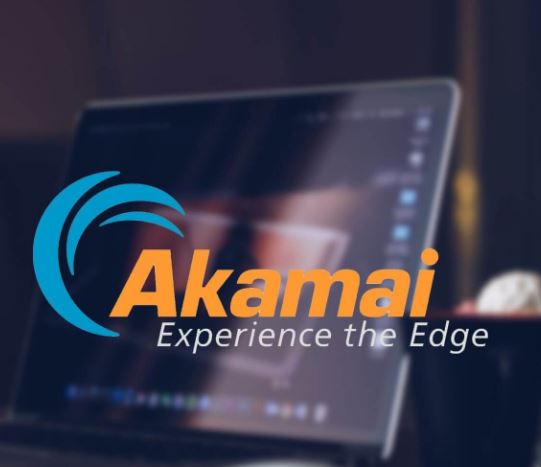What is Akamai NetSession Client? (Is It Safe to Remove)
Can I uninstall Akamai Netsession Client without risk?
Akamai Netsession is a software application that improves internet speed. It works by caching webpages locally on your PC. This way, you don’t have to wait for the server to respond to requests for information. However, there are several methods to remove Akamai Netsession without harming your computer.

What is Akamai Netsession Client?
Akamai Netsession Client is a desktop application designed specifically to make downloading large files much easier. With this tool you can connect to Akamai’s network and download files directly from your computer. You don’t even need to open up another browser window.
The Akamai Netsession program works by connecting to Akamai‘s servers and automatically downloading the file into your local folder. Once the download is finished, you can open the file normally.
This tool is used by many different companies including ASUS, Adobe, and Airbnb. They use it to allow their customers to download larger files faster. Companies like ASUS and Adobe are able to provide better customer support because they don’t have to worry about people having trouble downloading files.
How did the Akamai Netsession Client get onto my computer?
Akamai Netsession Client is a free tool developed by Akamai Technologies Inc., a provider of cloud computing services. The program collects data about how you use your computer and sends it back to the company. While some users might think that this is just another adware program, Akamai says it doesn’t do anything malicious. “We are simply collecting anonymous statistics,” explains Akamai. “This helps us improve our products and services.”
The program is bundled with several different types of software, including games, video players, media players, browsers, instant messaging programs, and even anti-virus software. The list of bundled applications includes Adobe Flash Player, Microsoft Silverlight, RealPlayer, Windows Media Player, QuickTime Player, VLC Media Player, Winamp, iTunes, Chrome, Mozilla Firefox, Opera, Internet Explorer, Skype, Facebook Messenger, WhatsApp, Yahoo Mail, Outlook Express, Thunderbird, Gmail, and others.
In addition to the above mentioned applications, Akamai Netsession also bundles itself with the following freeware: AdBlock Plus, Avast Free Antivirus, AVG AntiVir Personal Edition, Bitdefender Total Security 2017, ClamWin, ESET NOD32 Antivirus Pro, Kaspersky Internet Security 2016, McAfee LiveSafe, Norton 360, Panda Cloud Cleaner, Sophos Home Premium, Trend Micro Smart Protection Network, Webroot SecureAnywhere AntiVirus & Firewall, and ZoneAlarm Internet Security Suite.
If you want to know what else is bundled with Akamai Netsession, check out the screenshot below.
Once installed, the application will start running automatically each time you turn on your computer. You won’t notice it unless you open up Task Manager and look under Startup Items. If you’re worried about privacy issues, you can disable the program from starting automatically. Click Change settings next to Shut down. Then uncheck Turn screen off and set the option to When I sign out.
Is Akamai Netsession a Virus?
Akamai is a legitimate software program that does not contain malicious code. However, it could be used by cybercriminals to distribute malware. In addition, some versions of the application are bundled with adware. This article explains how to identify and remove any unwanted programs that might be installed alongside Akamai Netsession.
The most common way that hackers use Akamai Netsession is to bundle it with adware. Once you download the software, you’ll see a “Download Now” button next to the Akamai logo. Clicking this link will start the installation process. You won’t notice anything unusual about the setup wizard, but once the installer finishes installing, you’ll find out why.
When you launch the program, you’ll see a welcome screen where you’re asked to agree to the terms of use. There are three options here: accept, decline, or cancel. Choose the third option and press Next.
You’ll now be taken to the Akamai homepage. Here, you’ll see a list of popular applications that come preinstalled along with Akamai Netsession, such as Adobe Flash Player, Java Runtime Environment, Microsoft Silverlight, and others. Press Install to proceed.
If you don’t want to install any additional software, you can skip this step. Otherwise, select one of the following options:
• Select the Applications tab to view a list of all the applications that came preinstalled with Akamai Netsessions.
• Select the Add-ons tab to add additional applications.
What’s the Process for Akamai Netsession Client?
Akamai Netsession client allows you to install applications directly from the browser without having to go through the App Store or Google Play. This saves a lot of time because it doesn’t require downloading apps onto your phone. You just open up the browser and start browsing. Then, once you find something interesting, you tap on the link and wait for the installation process to finish. Once installed, you can use the app just like you normally do.
What Qualities Does the Akamai Netsession Client Offer?
Akamai offers a secure connection between the browser and the web server. This software allows clients to download large files quickly without having to wait for the entire file to load. It does not require any special configurations or installations.
Should I Delete Akamai Netsession Client?
Akamai is not spyware, malware, or other malicious software. It is simply a free add-on that enhances your download speeds and streaming experience. If you don’t like it, you can easily uninstall it.
Can I uninstall Akamai Netsession Client without risk?
Akamai is one of the most popular web hosting companies around. But did you know that there are some downsides to having an account with them? Today we’re talking about how to remove Akamai Netsession client from your PC without affecting anything else.
If you’ve been following along with our video tutorials, you’ll remember that we use a tool called CCleaner to clean up our computers. This program removes temporary files, cookies, history, cache, etc. from your browser. However, there are times when you might want to temporarily disable certain features of your browser. For example, if you’re trying to test out a new browser extension, you probably don’t want to delete your browsing history.
The good news is that you can do both – disable your browser while still keeping your data safe. Here, you can choose whether or not to allow access to cookies, local storage, and session state. You can even set a timeout period to limit how long your browser remembers information like passwords.
You can also choose to enable or disable the “Remove cookies and other site and plug-in data” option. If you decide to keep this enabled, it will prevent your browser from saving cookies and other data to disk, but it won’t actually clear those items from memory. This way, you can still browse normally, but you won’t accidentally save any personal information.
To disable cookies completely, select the “Clear Cookies and Other Site Data” checkbox. This will permanently delete all cookies from your machine. Be careful though – if you do this, you’ll lose any saved passwords or bookmarks.
Finally, you can turn off the “Delete cookies and other site and plugin data upon exit” setting. This will cause your browser to automatically clear everything when you close it. Again, make sure that you understand what you’re doing before turning this feature off.
Now that you’ve disabled your browser’s functionality, you can safely uninstall Akamai Netsession from your computer. Once complete, restart your browser to see the changes take effect.
How to Stop Akamai Netsession.
Akamai netsession is a free web browser extension developed by Akamai Technologies Inc., designed to help users browse the internet faster. It works by caching webpages locally so that they load faster without having to go through the Internet again. In addition, it helps improve browsing experience by reducing data usage. However, there are some drawbacks associated with akamai netsession. To avoid those issues, here are some tips on how to uninstall akamai netsession safely.
Step 1. Open Control Panel.
Click OK.
Step 2. Go to Programs and Features.
Right-click on akamai netsession, select Remove, and follow the instructions.
Step 3. Restart your computer.
Press Windows + R keys together, type cmd into the box, and press Enter. Type shutdown -r now, hit enter, and wait till your PC shuts down completely.
Windows PC
“Akamai Netsession”
If you are running Windows 10, there is a good chance you already have Akamai Netsession installed on your computer without knowing it. If you do, you might want to uninstall it because it won’t work properly anymore. Microsoft removed support for Netsession from Windows 10 version 1709 and later versions. You’ll need to update your operating system to use Akamai’s web browser.
Mac
The Mac operating system is one of the most popular operating systems used today. It is developed by Apple Inc., a multinational corporation based out of Cupertino, California. The Mac OS X operating system is designed specifically for use on Macintosh computers and it is the successor to the classic Mac OS 8.6.1.
Netsession is a free application that runs on Mac OS X 10.4 Tiger and later versions. This application enables users to surf the Internet via Safari browser. You can download Netsession here.
Frequently Asked Questions
Is my personal data uploaded by Akamai NetSession Client?
Akamai is a web host. They are known for providing services such as cloud computing, CDN, DDoS mitigation, etc. In addition to being used by companies, Akamai is also open source software. You don’t need to pay anything to use it. However, there is one thing about Akamai that might concern some people. When you install a program, your data is uploaded to Akamai’s servers. This includes your browsing history, cookies, passwords, etc. If you want to know whether Akamai is uploading your information, here are three things to check:
1. How does Akamai store your data?
2. Is Akamai storing your data in the United States?
3. Does Akamai offer an opt out option?
Why is my computer running slowly as a result of it?
BitTorrent is one of the most popular file sharing programs. It allows you to download movies, music, software, games, and much more. However, there are some downsides to using BitTorrent. For example, it can slow down your Internet connection because it uses up bandwidth. Additionally, it can consume a lot of storage space. If you’re running low on disk space, you might want to consider deleting old torrent files.

Tim Wiley was a tech writer for seven years at Recode. In that time, he covered everything from basic browser.js and URL parameters to XHRs, performance, malware, security, enterprise apps, social media, and Windows secrets. He also written about how to hack Signal in 2016 and how to resist, or possibly even conquer, the zero-day threat.
